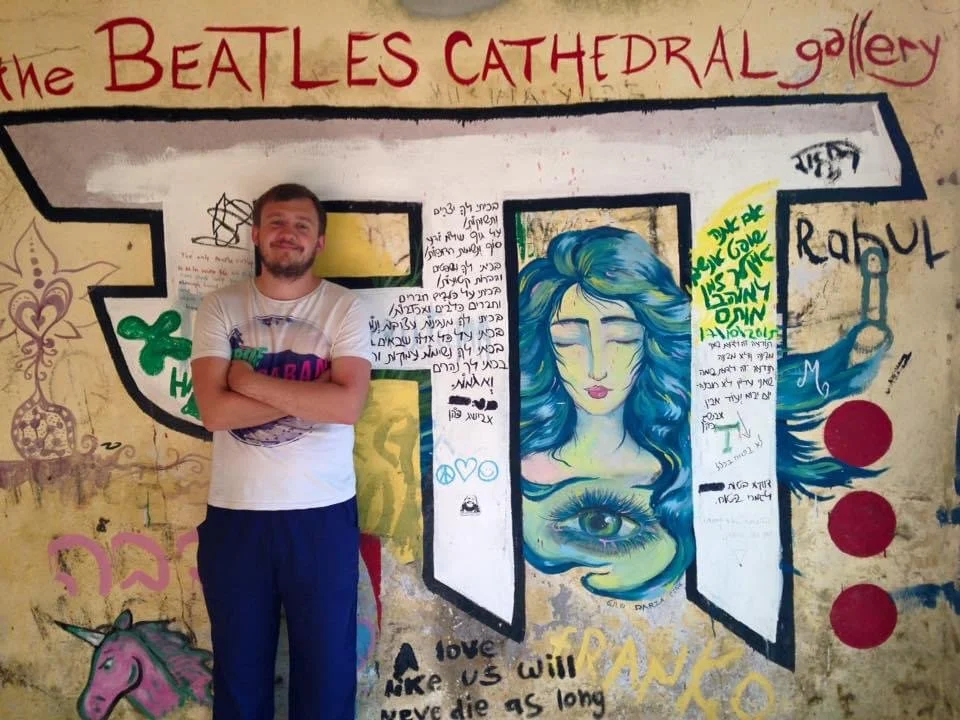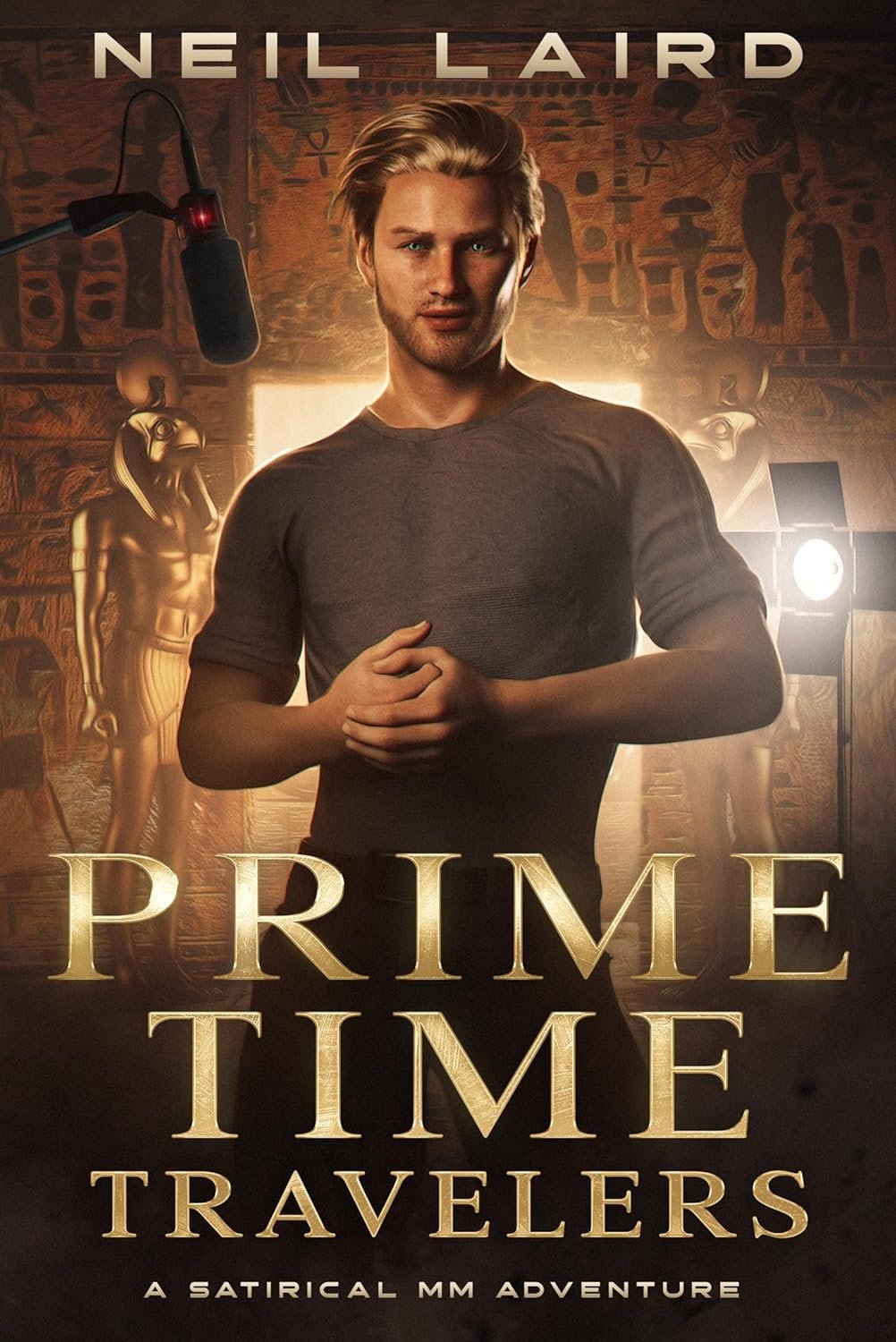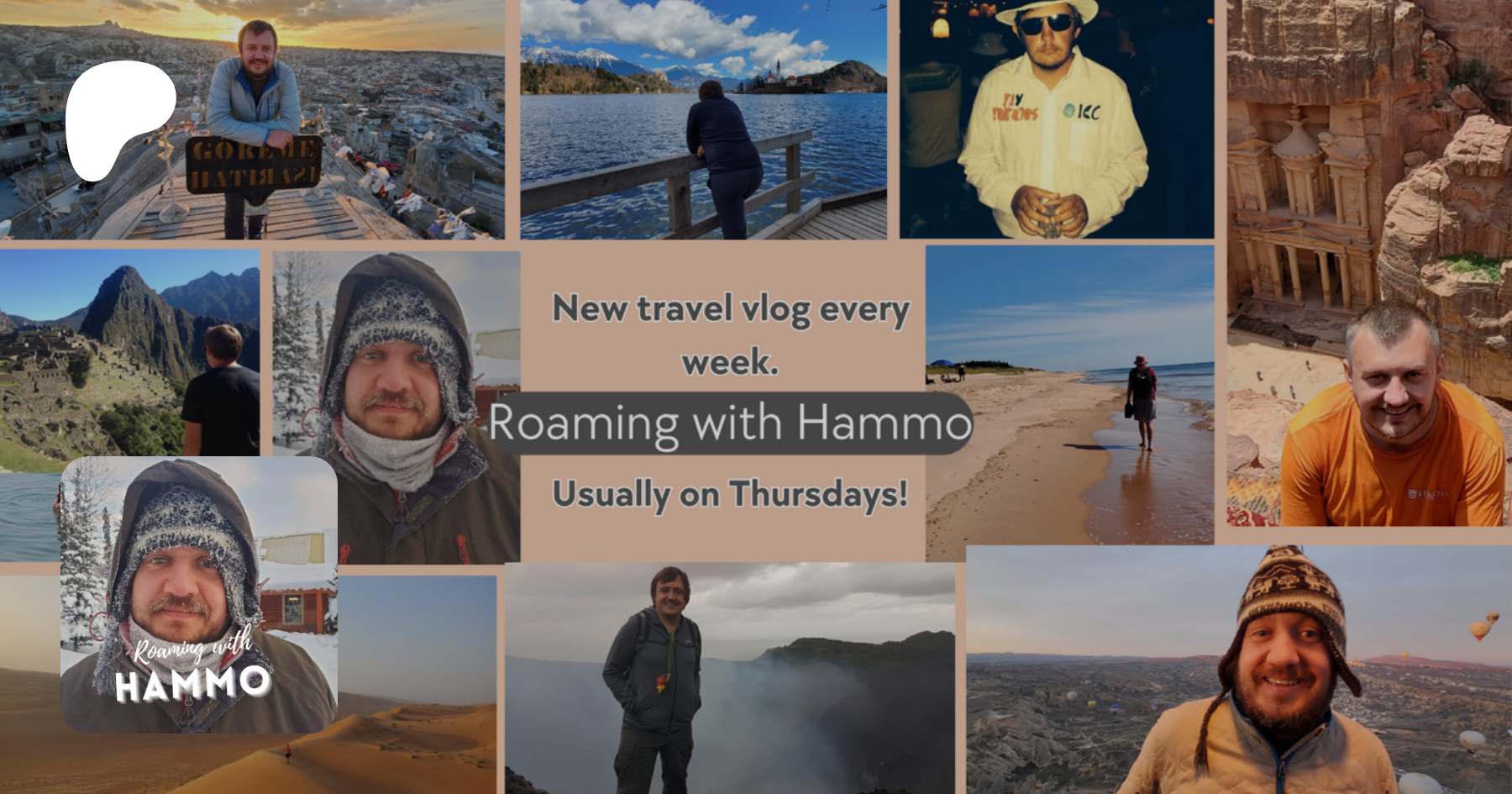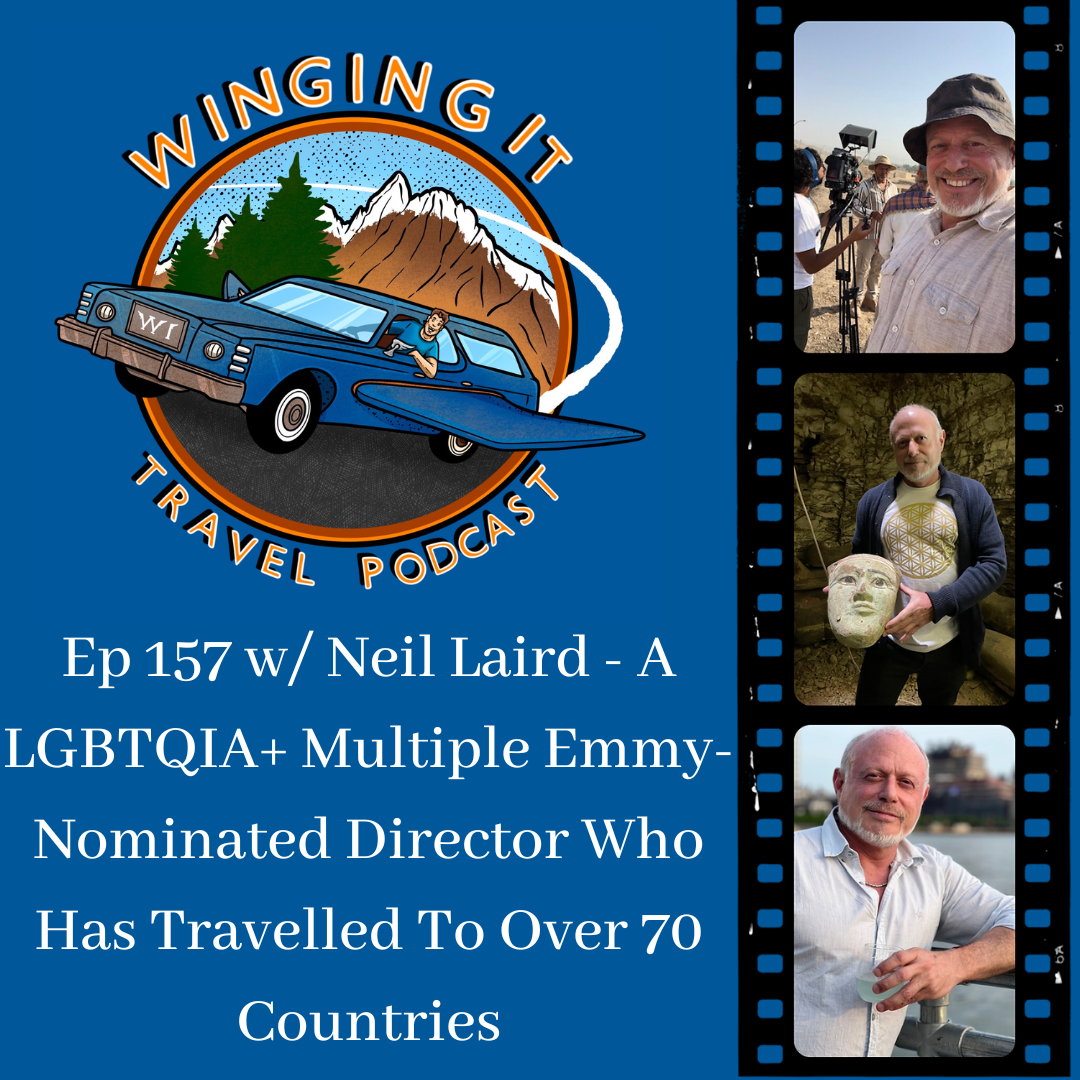An LGBTQIA+ Multiple Emmy-Nominated Director Travelling The World
Ep 157 w/ Neil Laird - A LGBTQIA+ Multiple Emmy-Nominated Director Who Has Travelled To Over 70 Countries
My 157th guest episode on the Winging It Travel Podcast is with Neil Laird, a TV producer, novelist, documentary maker, and avid traveller.
Neil Laird is LGBTQIA+ and a multiple Emmy-nominated director of historical films for Discovery, BBC, PBS, History Channel, National Geographic, and many other networks.
For 25 years, he has produced over 1000 hours of "non-fiction" films about the ancient world whilst travelling to over 70 countries. His films feature crumbling Egyptian tombs, lost Mayan cities, and mysterious shipwrecks at the bottom of the sea.
Neil’ discusses his ‘eye-opening’ backpacking trip on the podcast, what it is like to make TV documentaries worldwide, and why he has changed course to write novels.
Neil is very forthcoming about his extensive travel experiences, the realities of working in the travel and media industry, and the evolution of travel over the years.
Neil shares his insights on the challenges of documenting travel stories, the importance of local voices, and his transition from television to writing novels. The conversation also touches on the impact of streaming services on the industry, navigating travel as a gay producer, and the joys and fears of travelling to places like Egypt.
Let’s dive into some topics of the conversation.
The Skyscanner logo to book those flights!
No, really. You should book those flights like Neil does all around the world! If you scan the QR code below or click the QR, a link will open a new tab on Skyscanner!
Book those flights with the link or QR code and help the Winging It Travel Podcast make a tiny commission.
A travelling film director is not as glamorous as you think!
When you read Neil’s bio about making documentary films worldwide for National Geographic, BBC, Discovery, PBS, etc., your initial reaction is wow!
So naturally, I had to ask him what life is like, especially the travel portion.
Not as glam as you think.
As Neil points out, work is work, and travelling to work is no different than driving an hour to get into the office or making your way to the Pyramids to film a show.
Well, that is slightly better, but you get the gist.
Neil reminds us he is there for three days to film six hours of footage in the heat, organizing the filming, monitoring the gear, and ultimately getting the job done.
It is work!
The pressure is on for these big media companies to finish the filming and have it ready to be edited and released for the audience.
There isn’t much time to see the sights; Neil and his crew may get one day of sightseeing, but this is not long enough before he has to be on the plane home.
However, it gives Neil a taste of what the country is like, and with his interest in the civilisations that have gone by, Neil realises he needs to spend more time in places like Egypt, Turkey, and the Middle East.
The silver lining is that he planned his vacation times and breaks in work to visit these countries based on his work experiences.
But the key here to everyone is that people glamorize the combination of work and travel, but essentially, you are there to work. I think the only way you can get around this is to be a digital nomad or a full-time remote worker.
This allows you to control your time and travel slowly; this means you can see the place you are currently based in without the time constraint.
A fascinating life story for Neil.
We both love the stories of the Hippy Trail.
Do you ever fall for the Nostalgia Effect?
This is when people tend to recall the past more fondly than the present, often remembering things better than they were.
But for this, we both have Anemoia, which is nostalgia for an era we didn’t live in. For me, this is the 1960s.
So when we started talking about the Hippy Trail, I was excited and excited.
I love (I think) everything about the 1960s, especially in the UK, specifically London, the Swinging Sixties, etc.
Jimi Hendrix is my idol. Ipswich Town won the league, England won the World Cup, the counterculture was in full swing, Woodstock was the best festival ever, people started to live better out of the shadow of WW2, and travel was more accessible than in previous decades.
This was confirmed when I met two French ladies in India in 2016 who had recalled their road trip from Paris to Afghanistan 50 years earlier.
Neil and I discussed the Hippy Trail and the tales from those days. Neil tried to sell them as a film, but unfortunately, it didn’t sell.
Getting to Istanbul and heading east along the trail to Afghanistan without safety concerns is a dream come true, and for anyone with wanderlust, it can seem almost unbelievable.
Is this another thing which is glamorized?
Neil talks us through the dark side of this route, too, with unknown murders and people not making it back.
It is a fascinating story that needs both sides told. Hopefully, Neil can one day make a film about that trail before the people who participated in it pass away.
I for sure will be tuning in.
Neil’s transition from filmmaking to writing novels
How many of you can transition from your day job to something you want to do?
For Neil, this is writing novels. His current book, Prime Time Travelers, is a mix of time travel, Ancient Egypt, and making movies, which is a perfect combination for Neil.
I admire Neil for leaping into writing novels and for keeping going. Finally, he was able to get his current book published on the third attempt. It is very easy to give up and return to the day job.
Filmmaking is not ruled out for Neil, but he is willing to wait for the next opportunity that fits his values and interests. For now, he is writing novels.
After we recorded the episode, he flew to Turkey to write, which is a ‘proper’ vacation unlike his long days in the field making movies.
I have always dreamed of that type of trip.
I'm heading off to somewhere to get creative, and that could be podcasting or writing, too, but right now, the day job gets in the way.
If you can get to Neil’s position through hard work and perseverance, the fruits will be when you are sifting coffee on a river bank in Istanbul, writing novels, and having dreamy ambitions.
The key lesson from this episode is that you should aim to make a career out of something you enjoy or are at least good at so you can work towards your dream lifestyle.
We are all working towards that, and so am I. People like Neil, who come on to the podcast, inspire me every episode and day. It was a pleasure to have Neil on. He has so many stories that he is welcome back at any time.
Check out the full episode. You must, you need to, and it will inspire you, I guarantee it.
Check out my latest Roaming with Hammo YouTube episode about my backpacking essentials.
Other ways to support the podcast
My Patreon for Roaming with Hammo - support me today!
Supporting the podcast can be quick, easy and free. You can visit the platform you use for listening to podcasts and leave a five-star review and a nice little comment to go hand-in-hand. Check out my podcast page here.
Alternatively, you can contribute to the podcast by using my Buy Me A Coffee page where you can buy me a nice coffee for $5 whilst I conduct the interviews or click the button below.
I imagine most people listening to the podcast and reading this article are travel enthusiasts. Another way to support the podcast is to use my affiliate links to book flights, accommodations, tours, transport, and more. Click here to use them today!
My Instagram promotion for my latest guest episode
Who is Neil Laird?
Neil Laird is a multiple Emmy-nominated director of historical films for Discovery, BBC, PBS, History Channel, National Geographic, and many other networks. He has produced over 100 programs around the globe that feature crumbling Egyptian tombs, lost Mayan cities, and mysterious shipwrecks at the bottom of the sea.
But to his continued disappointment, he has yet to stumble upon a time machine to see these things when they were shiny and new. This book, the first in a series, aims to remedy that grave injustice.
I'm well versed in all phases of production, from development to shooting and post. I've also built an extensive list of contacts across the globe in both the production world and with foreign organizations, including antiquities boards in the Middle East, Europe, Asia and the Americas.
This episode is available on Spotify, Apple Podcasts, Audible and YouTube. And anywhere else, you get your podcasts!
Be sure to follow me on Instagram too!







